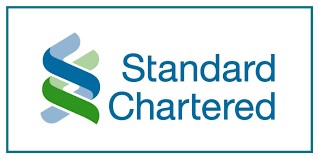Petroleum Industry Bill Offers Chance to Bolster Nigeria’s Depleting Forex Reserves

Nigeria’s strained foreign exchange reserves could stir up a fund-raising drive that could force government to sell a stake in the Nigerian National Petroleum Corporation (NNPC), Africa Report said on Wednesday.
John Hopkins University’s applied economics professor, Steve Hanke, said that the challenge encountered by bigger Nigerian firms in getting foreign exchange is symptomatic of the fact that the forex reserves of Africa’s top economy are weaker than reported.
The country has seen various devaluation rounds of its currency this year. Its current account balance stood at $35.7 billion in September. Hanke doubts the reality of that figure.
“They’re running out of FX. They’re in a corner,” he said.
Also Read: PIB Delay: NNPC Boss Says Investors Losing Confidence in Nigeria
Should the Petroleum Industry Bill be passed by the National Assembly, the NNPC will metamorphose into a limited liability firm and will have the chance of raising fund by being enabled to sell off a stake. Contrary to expectation that the National Assembly would pass the bill without delay, it has postponed further deliberations on it to next year.
Review of the legal basis for Nigeria’s oil sectors has been in the works since 2008. The current PIB is said to recommend the establishment of an independent regulator for operations across the downstream, upstream and midstream segments of the energy industry.
It seeks to also cut royalty rate to 7.5% from 10% for offshore fields producing up to 15,000 barrels of oil per day.
Supermajors including Eni, Shell, Chevron and Exxon have not made significant investment in new exploration and production projects, pending new legislation government that governs their investment.
The value of such projects are estimated at $47.6 billion of fresh investment in Nigeria’s oil sector; they are expected to ramp up Nigeria’s current petroleum output by nearly 40%, Hamish McArdle and Tom Edwards of London’s Baker Botts law firm said.
Also Read: Buhari’s PIB to Open NNPC to Nigerian and Foreign Investors
“Investors will not only be concerned with legacy but they expose risks, including moral hazard, which can only be mitigated by putting proper structures and corporate governance in place,” said Deji Olatoye, partner at Lagos-based The Lodt law firm.
According to him, private shareholding of around 5% in the commercial entity formed to replace the Nigerian National Petroleum Corporation (NNPC) would not make a significant difference in dealing with moral hazard. Instead, a considerable stake is what could provide “a level of control over governance.”








One Comment